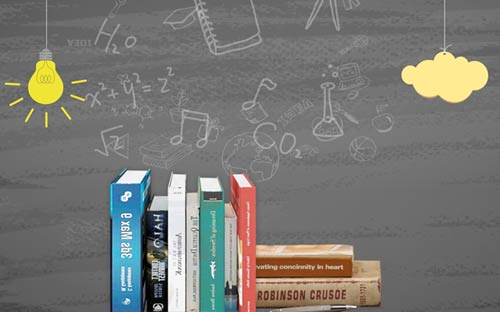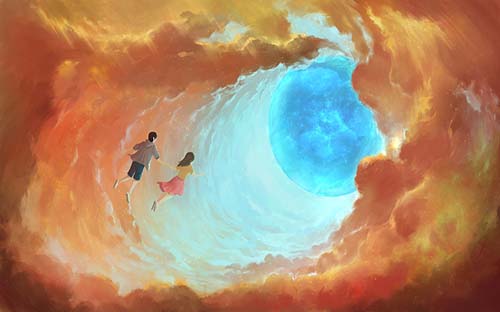sat 考试题目_SAT考试题目数
sat 考试题目_SAT考试题目数
如果您有关于sat 考试题目的问题,我可以通过我的知识库和研究成果来回答您的问题,并提供一些实用的建议和资源。
文章目录列表:
1.sat 考试题目2.SAT改错题
3.SAT考试都考哪几科啊?
4.SAT考试都考什么
5.美国SAT考试要考什么

sat 考试题目
SAT作文的分类,所有真题
Individuality
--Following the Crowd
Do people need to compare themselves with others in order to appreciate what they have?
Are widely held views often wrong, or are such views more likely to be correct?
Is there any value for people to belong only to a group or groups with which they have something in common?
Is it always best to determine one's own views of right and wrong, or can we benefit from following the crowd?
Is it more valuable for people to fit in than to be unique and different?
Are people more likely to be productive and successful when they ignore the opinions of others?
--Following Authority
Should we pay more attention to people who are older and more experienced than we are?
Should society limit people's exposure to some kinds of information or forms of expression?
Can a group of people function effectively without someone being in charge?
Is it important to question the ideas and decisions of people in positions of authority?
Should society limit people's exposure to some kinds of information or forms of expression?
Is education primarily the result of influences other than school?
Should schools help students understand moral choices and social issues?
--Following Creativity
Is it always better to be original than to imitate or use the ideas of others?
Is it better for a society when people act as individuals rather than copying the ideas and opinions of others?
Is creativity needed more than ever in the world today?
Can people ever be truly original?
Do we put too much value on the ideas or actions of individual people?
Does planning interfere with creativity?
Motivation and Success
--Hardship and Success
Do people truly benefit from hardship and misfortune?
Do we really benefit from every event or experience in some way?
Do people place too much emphasis on winning?
Do people learn more from losing than from winning?
Does true learning only occur when we experience difficulties?
Does being ethical make it hard to be successful?
Can knowledge be a burden rather than a benefit?
Is persistence more important than ability in determining a person's success?
Is the effort involved in pursuing any goal valuable, even if the goal is not reached?
--Self-Determination and Success
Is identity something people are born with or given, or is it something people create for themselves?
Is it best for people to accept who they are and what they have, or should people always strive to better themselves?
Do success and happiness depend on the choices people make rather than on factors beyond their control?
Are people more likely to be happy if they focus on goals other than their own happiness?
Is it more important to do work that one finds fulfilling or work that pays well?
--Self-Expectation and Success
Do highly accomplished people achieve more than others mainly because they expect more of themselves?
Can people achieve success only if they aim to be perfect?
Is it best to have low expectations and to set goals we are sure of achieving?
--Collaboration and Success
Is it necessary for people to combine their efforts with those of others in order to be most effective?
Are organizations or groups most successful when their members pursue individual wishes and goals?
Do people achieve more success by cooperation than by competition?
--Ethics and Success
Does fame bring happiness, or are people who are not famous more likely to be happy?
Are people's actions motivated primarily by a desire for power over others?
--Quality or Quantity and Success
Do people achieve greatness only by finding out what they are especially good at and developing that attribute above all else?
Are all important discoveries the result of focusing on one subject?
Technological “Progress”
Does a strong commitment to technological progress cause a society to neglect other values, such as education and the protection of the environment?
Are there benefits to be gained from avoiding the use of modern technology, even when using it would make life easier?
Has today's abundance of information only made it more difficult for us to understand the world around us?
Is the most important purpose of technology today different from what it was in the past?
Have modern advancements truly improved the quality of people's lives?
Do newspapers, magazines, television, radio, movies, the Internet, and other media determine what is important to most people?
Should modern society be criticized for being materialistic?
Heroes
Do we benefit from learning about the flaws of people we admire and respect?
Should we limit our use of the term "courage" to acts in which people risk their own well-being for the sake of others or to uphold a value?
Should we admire heroes but not celebrities?
Is there a value in celebrating certain individuals as heroes?
Tradition
Do all established traditions deserve to remain in existence?
Do people need to "unlearn," or reject, many of their assumptions and ideas?
Should people always prefer new things, ideas, or values to those of the past?
Do incidents from the past continue to influence the present?
Do memories hinder or help people in their effort to learn from the past and succeed in the present?
Is it always necessary to find new solutions to problems?
Loyalty
Should people always be loyal?
Do circumstances determine whether or not we should tell the truth?
Can deception—pretending that something is true when it is not—sometimes have good results?
Is it sometimes necessary to be impolite?
Is acting an essential part of everyday life?
Others (less clearly defined; separated by spaces)
Is compromise always the best way to resolve a conflict?
Should people choose one of two opposing sides of an issue, or is the truth usually found "in the middle"?
Is the main value of the arts to teach us about the world around us?
Can books and stories about characters and events that are not real teach us anything useful?
Can common sense be trusted and accepted, or should it be questioned?
Do people put too much emphasis on learning practical skills?
Should people take more responsibility for solving problems that affect their communities or the nation in general?
Should people let their feelings guide them when they make important decisions?
Can people have too much enthusiasm?
Do images and impressions have too much of an effect on people?
Are decisions made quickly just as good as decisions made slowly and carefully?
Should people change their decisions when circumstances change, or is it best for them to stick with their original decisions?
Is it better to change one's attitude than to change one's circumstances?
Is criticism—judging or finding fault with the ideas and actions of others—essential for personal well-being and social progress?
Does having a large number of options to choose from make people happy?
我还有我自己分的,如果你要的话用百度Hi我~O(∩_∩)O~
SAT改错题
本句是由一个完整分句The beaver is the largest rodent in North America, 一个不完整分句(缺少主语)large, flat, nearly hairless tail, webbed hind feet, and short front legs with hairy claws构成,即SVO, VO.结构。属于流水句 错句
在SAT语法考题中,处理流水句,一般会采取以下几种方法:
①逗号变为句号,两分句独立成完整的句子。
②逗号后用并列连词连接两分句
③变逗号为分号(可以使用连接副词体现逻辑关系,如:therefore, thus, however furthermore, nevertheless)
④主要分句作主句,其它分句变成从属结构(从句或词组,强调主句所表达的意义,弱化从属结构所表达的意义)
选项D 就是 按照 ④ 把后面的句子 当 主句 前面是独立主格结构作状语 所以正确
选项C 多了一个主语 the beaver 应去掉 后面的the beaver
the largest rodent in North America 是同位语
SAT考试都考哪几科啊?
在SAT中,由批判性阅读(CriticalReading)、数学(Mathematics)和写作(Writing)三部分。
1、批判性阅读
批判性阅读(下称CR)部分共67道题目,包括:19道完成句子(Sentence Completion,下称SC)和48道文章阅读(Passage-Based Reading)。
文章阅读中,共包含3篇独立长文章、1组长对比文章、2篇独立短文章和1组对比短文章,共5篇独立文章和两组对比文章。
2、数学
数学部分共44道选择题和10道填空题。
3、写作
在2005年SAT改革之后才加进来的,共3个区,包含一篇作文和49道语法选择题。其中,作文大约占总分的30%,语法选择题大约占总分的70%。
语法选择题中包含25道改进句子(Improving Sentences,下称IS)、18道句子挑错(Identifying Sentence Error,下称ISE)和6道改进篇章(Improving Passage,下称IP)。
扩展资料
美国大专院校委员会5日宣布,将对俗称美国“高考”的SAT(学习能力测试)实施改革,包括将作文改为选考项目、突出常用词汇、推出机考等,新版考试自2016年起正式实施。?
据美国媒体报道,美国大专院校委员会近年来在酝酿SAT考试改革,原因之一也是为了应对美国另一项大学入学标准测试—ACT的竞争。
SAT考试在美国东海岸和西海岸地区更受欢迎,去年共有170万人参加。ACT考试在美国中部更受欢迎,但自2012年以来在全美大有赶超SAT之势。ACT考试已计划于2015年推出机考。
百度百科-SAT改革
百度百科-SAT
SAT考试都考什么
1、阅读:其实不仅有阅读,还有填句子什么的,主要考察学生的阅读和完成句子的能力,主要题目类型包括阅读理解、段落阅读和完成句子。总共70分钟,三个小章节,两个章节各25分钟,一个章节20分钟。
2、数学:考察各种数学计算和思维能力,主要题目类型包括五选一的选择题和要求填写步骤过程的解答题。总共70分钟,三个小章节,两个章节各25分钟,一个章节20分钟。
3、写作:考察学生的写作能力,主要题型包括选择题和一篇作文,选择题主要是挑错之类考察你是否能够改进句子和文章,一篇作文要求有头有尾并且有自己的观点看法。总共60分钟,两个小章节,选择题章节35分钟,写作部分25分钟。
每个SAT的考试部分都是800分满分,写一个名字就能得200,总分2400分,以25分钟作文开头。SAT还有一个部分是不计分的,25分钟,可能是三个部分中的任何一个,但是提前不会告诉你,所以你必须要做完所有部分。这个不计分部分一般都是为了以后出题来找一个标准。
美国SAT考试要考什么
SAT考试分为3个部分,阅读和文法,数学和作文。其中作文部分为选考。
各部分详情: ?
1、阅读和文法
阅读部分的考试时间为65分钟,文法的考试时间为35分钟,阅读部分的题目数量为52道,文法部分为44道题目,两者相加的分数为800分。
阅读部分包含4篇文章和1组文章,每篇文章的字数在500-750之间。文章类型多为文学作品,自然科普类文章,历史社会等,日常生活类文章较少出现。
文法考试的文章为4篇,文章类型为记叙文,议论文和说明文这三种。
2、数学 ?
数学部分的考试时间为80分钟,题目数量为58道,考试分数为800分。
有20道题目是不可以使用计算机的,题型是选择题和填空题的形式。
考察的内容包含几何,三角,函数,代数,数据分析等相关知识。
3、 作文部分
作文部分的考试时间为50分钟,题目数量为1道,分数为2-4分。
会给考生一篇文章,考生需要阅读文章并且总结分析,以此为基础来进行写作。
好了,今天关于sat 考试题目就到这里了。希望大家对sat 考试题目有更深入的了解,同时也希望这个话题sat 考试题目的解答可以帮助到大家。
最新更新
推荐阅读
猜你喜欢
- 2014sat考试作弊案件,《天才枪手》的真实故事是什么
- 2013年参加sat考试,2013年10月份sat什么时候报名怎样在collegeboard上查看已
- 2017sat十月考试时间,SAT一年考几次?
- 11月份sat考试时间表,sat一年考几次
- 2016年1月sat考试,2015sat考试时间-2016年SAT考试时间
- 11月sat2考试时间,SAT2考试考多长时间,几点进考场?请考过的人指点,谢谢!
- 2016年4月北美sat考试题,SAT句子填空题 OG上的 给我讲讲吧 解答给全了才给分昂 好的话追
- 14年美国sat考试,2014年sat亚洲考场作弊案抓到人了吗
- 2014香港sat考试地点,SAT香港考试地点有哪些
- 2016sat2考试时长,sat1和sat2的考试时间 是一样的么
关注我们


 留学规划
留学规划  留学考试
留学考试  留学指南
留学指南  留学攻略
留学攻略  留学生活
留学生活  留学签证
留学签证  美国留学网
美国留学网  留学学校
留学学校  留学专业
留学专业  网站首页
网站首页







